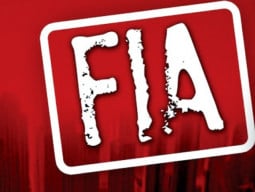
Keeping in mind the growing needs of the city and its surrounding areas, the Pakistan Atomic Energy Commission (PAEC), which is running the public nuclear medicine centres in the country, decided to turn the old nuclear-imaging department of the Medical Radioisotope Centre at JPMC into a full-scale institutional facility.
Equipped with the latest technology of nuclear medicine and radiation therapy, the advance institute of AEMC would cater to almost 60,000 patients per year, which is double its former capacity of 30,000 patients.
Now fully operational for the patients, the three-floor state-of-the-art building covers an area of 73,000 square feet on a plot of 77,000 square feet that was provided by the JPMC and the health ministry. Work on the project was started in 2007. It was completed at a cost of Rs602 million.
“In cancer, an early diagnosis is very important and this is what this centre is going to specialise in,” said Dr Shahid Kamal, AEMC Director. Talking to The Express Tribune, he said that besides the treatment and diagnosis of cancer, the centre also has facilities for diagnosis of thyroid, bone, heart, brain, lungs and kidney ailments. Even breast cancer can be diagnosed at an earlier stage with the help of the equipment at the centre, he added.
The centre has been upgraded from a few gamma cameras and a laboratory into a full- fledged institute. The nuclear medicine department has six gamma cameras and the first CT-SPECT facility in the country. It is also equipped with thyroid uptake system, cardiac stress systems, hot lab and a reporting unit, he added.
The radiology department is equipped with a general purpose X-ray machine, Doppler ultrasound, mammography and a multi-slice CT machine. A clinical and radioimmunoassay lab and physics and maintenance departments are also part of the centre.
Dr Kamal said that radiation and environmental monitoring and safety is an essential component of the institute.
Dr Ansar Parvez, AEMC Chairman, said that to date, PAEC has established 14 nuclear medicine centres across Pakistan and is in the process of completing four more. Three of the new ones, in the cities of Benazirabad, DI Khan and Swat, will start working this year.
Before AEMC, advance radiology treatment in Karachi was only available in the Kiran Hospital. Kiran Hospital and AEMC are the two nuclear medicine centres of PAEC working in Karachi, while there are two more PAEC hospitals in Sindh. Other nuclear medicine centres in the city are at AKUH, Baqai Hospital, Ziauddin Hospital and Liaquat National Hospital, but the cost of treatment there is almost three times higher since they are all private facilities, informed Dr Kamal.
Another senior nuclear physician, Dr Shaheen Zareen, who is the DCMO of AEMC, said that the upgraded centre will cater to a huge population.
“We don’t just have patients of Karachi, there are patients from the whole of Sindh and even Balochistan” she said.
Shedding light on the incidence of cancer in the world, the chief guest, Dr Sagheer Ahmed, said that it is almost an epidemic now and the cases are increasing in poor countries.
He said that the recent world statistics on cancer show that the number of patients is expected to double by 2030. Praising the efforts of PAEC, he said, “Pakistan has always been a strong supporter of peaceful uses of nuclear technology and the nuclear centres are landmark achievement of PAEC for the betterment of people.”
Published in The Express Tribune, January 13th, 2011.

1732437695-0/drake-and-charles-(1)1732437695-0-165x106.webp)


1732434981-0/BeFunky-collage-(10)1732434981-0-165x106.webp)












COMMENTS
Comments are moderated and generally will be posted if they are on-topic and not abusive.
For more information, please see our Comments FAQ